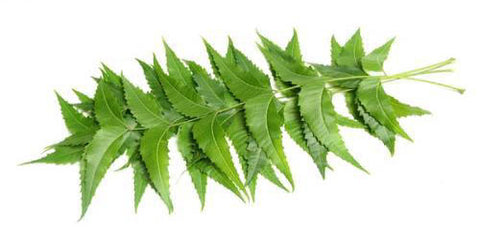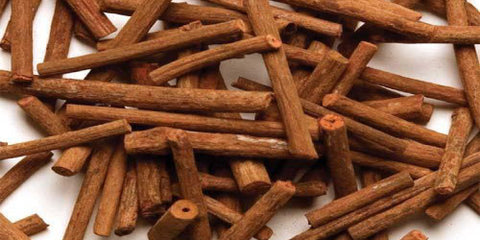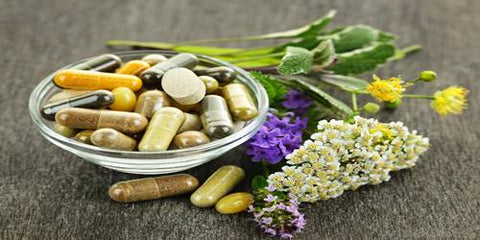Medicine for Allergy: The Ultimate Guide & Home Remedies for Allergy
Published on Feb 24, 2021

By Dr. Surya Bhagwati
Chief In- House Doctor
BAMS, DHA, DHHCM, DHBTC | 30+ Years of Experience

Allergies have become so widespread today that we often tend to ignore them unless they are debilitating or cause visible blemishes. There are various types of allergies, including skin, respiratory, food, pet, seasonal, and drug allergies, but the most common are skin and respiratory allergies. While food and drug allergies must be dealt with by avoiding any exposure to the triggers, respiratory and skin allergies can be addressed through a variety of natural remedies as it is often hard to identify and avoid exposure to the allergens. As is usually the case with natural medicine, Ayurved is one of the best sources of information on herbs and natural allergy treatments.
Here is a list of some of the most effective natural medicines and treatments so that you can find a home remedy for allergy relief that works best for you.
Natural Medicine and Home Remedies for Skin Allergies
1. Neem

Neem is one of the most widely used herbal ingredients in Ayurvedic cosmetics and skin care products including soaps and creams. To get relief or lower the risk of an allergic reaction it would be a good practice to switch to natural skin care products that do not contain any harsh chemicals. When using neem-based cleansers, soaps, and masks, make sure that the products do not contain any added chemicals. Neem products are effective at relieving allergies because of strong anti-inflammatory and antioxidant properties that are attributed to the presence of compounds like Quercetin and Nimbin, which are flavonoids and triterpenoids. In fact, nimbin exhibits antihistamine properties, which are essential feature of any medicine for allergy relief.
2. Manjistha

Manjistha may not be as popular or well known as neem, but it is no less effective at relieving a wide range of skin conditions, including allergies. The herb is highly valued in Ayurved for its detoxification and blood purification effects, providing quick relief from skin irritation and inflammation. Manjistha is also known to encourage skin healing and can lower the risk of secondary infections that can set in because of scratching at dry or itchy skin. To use manjistha for skin allergy relief, you can use manjistha powder as paste with rose water and honey, applying it over the affected areas of skin. You can also consume it in the form of oral medications that include it as an ingredient.
3. Ayurvedic Skin Allergy Medicine

While topical applications are great for providing quick relief, it can also help to take oral allergy medications, especially when dealing with severe reactions. Moreover, the regular intake of such herbal formulations can even lower the risk of severe allergic skin reactions. When choosing an ayurvedic skin allergy medicine, look for ingredients like harda, amla, manjistha, pipper, and guggul. These herbs are noted for their detox and digestive benefits, which are prerequisites for healthy glowing skin. Immuno-modulatory, antioxidant, anti-inflammatory, and antimicrobial properties of these herbs can also help relieve or prevent inflammatory and allergic skin disorders.
4. Herbal Face Packs

In keeping with the advice to avoid harsh chemical-based cosmetics that are often triggers for allergic skin reactions, you should consider using herbal face packs that you can prepare at home. You can use Ayurvedic ingredients like honey, rose water, haldi powder, besan, and sandalwood powder, among others to make a natural face pack. Alternatively, you can use Ayurvedic herbal face packs and cleansers that contain ingredients like lodhra, haldi, kapur, menthol, and dhania. Such a combination of herbs provides a soothing effect that quickly relieves and reduces inflammation and irritation of the skin.
Natural Medicine and Home Remedies for Respiratory Allergies
1. Nasya Neti

The practice of nasya and neti are strong Ayurvedic and Yogic traditions respectively, and they are a part of our rich cultural heritage. Unfortunately, these practices have been largely forgotten and ignored, but there is now a growing recognition of its efficacy in relieving and preventing respiratory allergies and infections. In fact, modern studies show that nasal irrigation can help in the management of conditions like allergic rhinitis. Neti is a traditional Yogic nasal rinse performed using a neti pot, while nasya is used to moisturize the nasal passage after flushing. Before trying out the practice, seek guidance from an experienced Ayurvedic physician.
2. Ayurvedic Inhalants

Commonly used inhalants for asthma and severe respiratory allergies can be life-saving treatments, but should only be used in emergencies. Prolonged and frequent use of such inhalers is known to reduce efficacy, cause hyperinflation of the lungs, hypertension, cardiac arrhythmias, and other serious side effects. This makes herbal Ayurvedic inhalers a much safer choice for regular use when dealing with respiratory allergies. Ayurvedic inhalers with herbal extracts and oils like menthol or peppermint, eucalyptus, tulsi, sandalwood, and brahmi can be extremely effective at relieving airway inflammation, opening up the airways and easing breathing. Studies have shown that ingredients like peppermint or menthol oil and eucalyptus can even provide relief from symptoms of bronchial asthma and allergic rhinitis.
3. Ayurvedic Allergy Medicine

Ayurvedic allergy medicines are some of the best choices when dealing with respiratory allergies, whether the symptoms include cold and congestion, coughing, or wheezing and breathing difficulties. Herbal syrups and lozenges containing herbal extracts like jyeshtimadhu, brahmi, tulsi, and kapur can be extremely helpful as allergy cough treatment because of their anti-inflammatory and antispasmodic effects. However, it would also help to take polyherbal formulations containing herbs such as sitopala, pepper, tej, elaichi, and jyesthimadhu as such a combination has a strengthening effect on the respiratory and immune systems, lowering the risk of allergic reactions. You will find these ingredients in any of the best allergy medicines.
4. Herbal Teas

Herbal teas have become trendy, with green tea becoming especially popular for detoxification. However, traditional Indian herbal teas with their roots in Ayurved are far more effective at relieving respiratory allergies and infections. Herbs like ginger, tulsi, peppermint, and manjistha are known to exhibit a variety of therapeutic actions through antioxidant, anti-inflammatory, immunomodulatory, antimicrobial, and bronchodilatory effects. To prepare any of these herbal teas simply add a few slices of ginger or some peppermint or tulsi leaves or a quarter teaspoon of manjistha powder to a cup of boiling water and allow it to steep for a few minutes. No matter which of these herbs you choose to use, you can also add a teaspoon of honey as a natural sweetener.
While these Ayurvedic medicines and home remedies are extremely helpful at relieving allergies, it is important that you are consistent with the use of Ayurvedic herbs. Keep in mind that for a lasting solution it is also important to try and identify and avoid exposure to allergens as far as possible. It would also help to follow a personalized diet plan to maintain your optimal balance of doshas. You can also adopt other healthy lifestyle practices like yoga and meditation to promote optimal health and lower stress levels, which are known to exacerbate allergic reactions.
Dr. Vaidya’s has more than 150 years of knowledge, and research on Ayurvedic Health Products. We strictly follow the principles of Ayurvedic philosophy and have helped thousands of customers who are looking for traditional Ayurvedic medicines for ailments and treatments.
Get assured discount on a few of our selected Ayurvedic products and medicines. Call us on – +91 2248931761 or submit an enquiry today at care@drvaidyas.com
References:
- Alzohairy, Mohammad A. “Therapeutics Role of Azadirachta indica (Neem) and Their Active Constituents in Diseases Prevention and Treatment.” Evidence-based complementary and alternative medicine: eCAM vol. 2016 (2016): 7382506. doi:10.1155/2016/7382506
- Lin, Z X et al. “Ethyl acetate fraction of the root of Rubia cordifolia L. inhibits keratinocyte proliferation in vitro and promotes keratinocyte differentiation in vivo: potential application for psoriasis treatment.” Phytotherapy research: PTR vol. 24,7 (2010): 1056-64. doi:10.1002/ptr.3079
- Shin, Yong-Wook, et al. “In Vitro and In Vivo Antiallergic Effects of Glycyrrhiza Glabra and Its Components.” Planta Medica, vol. 73, no. 3, 2007, pp. 257–261., doi:10.1055/s-2007-967126
- Little, Paul, et al. “Effectiveness of Steam Inhalation and Nasal Irrigation for Chronic or Recurrent Sinus Symptoms in Primary Care: a Pragmatic Randomized Controlled Trial.” Canadian Medical Association Journal, vol. 188, no. 13, 2016, pp. 940–949., doi:10.1503/cmaj.160362
- Juergens, U R et al. “The anti-inflammatory activity of L-menthol compared to mint oil in human monocytes in vitro: a novel perspective for its therapeutic use in inflammatory diseases.” European journal of medical research vol. 3,12 (1998): 539-45. PMID: 9889172
- Elaissi, Ameur et al. “Chemical composition of 8 eucalyptus species' essential oils and the evaluation of their antibacterial, antifungal and antiviral activities.” BMC complementary and alternative medicine vol. 12 81. 28 Jun. 2012, doi:10.1186/1472-6882-12-81
- Townsend, Elizabeth A et al. “Effects of ginger and its constituents on airway smooth muscle relaxation and calcium regulation.” American journal of respiratory cell and molecular biology vol. 48,2 (2013): 157-63. doi:10.1165/rcmb.2012-0231OC
- Jamshidi, N., & Cohen, M. M. (2017). The Clinical Efficacy and Safety of Tulsi in Humans: A Systematic Review of the Literature. Evidence-Based Complementary and Alternative Medicine: eCAM, 2017, 9217567. doi:10.1155/2017/9217567

Dr. Surya Bhagwati
BAMS (Ayurveda), DHA (Hospital Admin), DHHCM (Health Management), DHBTC (Herbal Beauty and Cosmetology)
Dr. Surya Bhagwati is an established, well-known Ayurvedic expert with over 30 years of experience in treating and consulting in the field of Ayurveda. She is known for the timely, efficient, and patient-centred delivery of quality health care. The patients under her care receive a unique holistic treatment comprising not only medicinal treatment but also spiritual empowerment.



